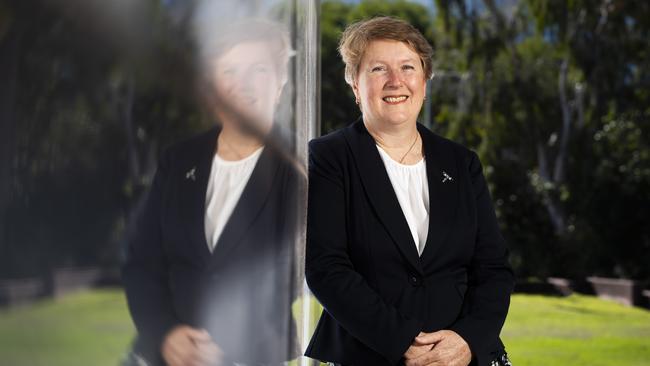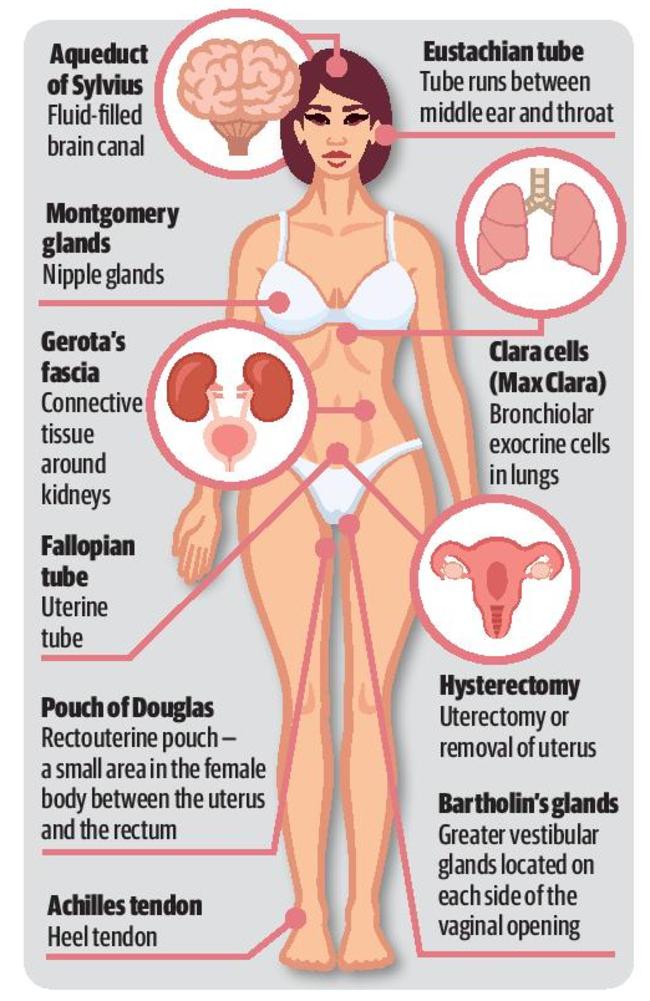Doctors teach next generation more relevant anatomy parlance
Doctors are pushing for an end to centuries-old anatomical terms named after “old men, kings and heroes” claiming they are no longer relevant and represent the biases of much older generations.
Doctors are pushing for an end to centuries-old anatomical terms named after “old men, kings and gods” claiming they are no longer relevant and represent the biases of much older generations.
And some have moved to teaching the next generation of medics to phase out the irrelevant, confusing and often misogynistic medical parlance and instead use more practical and descriptive terms for body parts in daily practice.
Australia to buck the trend as global population peaks
‘It hit like a sledgehammer’: Ruby Princess COVID victim
New tech promises breast cancer radiation without tattoo markers
Eponyms are the names given for a part of the body that is named after a person. Achilles heel, Fallopian tube and Adam’s apple among the most well known. Women are not represented, except for rare cases.
Dr Kirstin Small, a Queensland specialist obstetrician/gynaecologist and anatomy lecturer at Griffith University said there is always an alternative to the “dead man’s name for body parts” and she teaches her midwifery students both the eponyms and the alternatives.

“I think we have a personal choice to decolonise our language and these historical terms will fade out. Of course I make sure the students know the eponyms for exam purposes,” Dr Small said.
The Royal Australian and New Zealand College of Obstetricians and Gynaecologists council member and a spokeswoman for the college Dr Nisha Khot feels sure the eponyms will become obsolete and she too teaches trainee doctors to explore alternatives.
“The young trainee doctors are mostly keen to learn the more relevant language and are often shocked when they hear the origins of some medical terms. The origins of hysterectomy for example has a horrendous connection to past days when female hysteria was a medical condition often treated with a surgical hysterectomy. That’s not appropriate today. I prefer the term uterectomy,” Dr Khot said.
“The push for change may have started in the area of women’s health but the conversation is now in the wider health community. It just makes sense for the medics but also for the patients to use more understandable terms,” she said.

Many surgical instruments are named after historical figures like a Pfannensteil incision which is a particular way to open the abdomen for surgery. Pfannensteil published a paper on transverse incision in 1900. Speculum is named after an American slave trader.
“In medicine many body parts are named from people from many centuries ago, even ancient kings and heroes. and gods. Women don’t get a look in,” Dr Khot said.
When Dr Small posted on Twitter her thinking on eponyms, American researchers put out an impromptu report where they reviewed 700 normal (not pathological) anatomical and histological eponyms. They found that out of 700 only one was named after a woman. Half of the body parts named after physicians were those born between 1800 and 1875.
“So many bits of the female reproductive system are still named after dead dudes. The comedian Hannah Gadsby is tagged into the Twitter post as she explained it well when she said ‘how would a man feel if his dangly bits were known as Karen’s clutch’?” Dr Small said.

